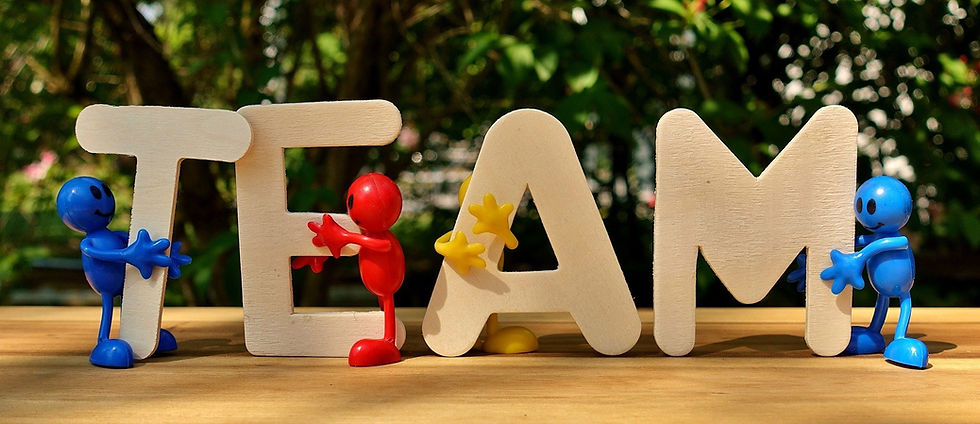Team environment – the most important ingredient for high performing teams!
- Mary Ely
- Mar 31, 2021
- 3 min read
Updated: Dec 18, 2021

Of my 5 essential ingredients for high performing teams that feel great to work in, team environment is the most important.
People need to feel psychologically safe, in an environment that enables them to do their best thinking and their best work.
For me, this means people need an environment where they know they can
be accepted for who they are
have their say, be heard and understood
experiment, have a go, make mistakes and learn
ask stupid questions more than once
not always know the answer
experience emotion,
think and work in a way that’s best for them,
safely share information and knowledge,
debate, disagree, challenge and be challenged, and
take risks/be empowered to make decisions
….without fear of any personal judgement or professional damage.
How do you create this environment?
The team environment is a product of the attitudes of the team members and how they relate to each other.
By following my SOAR approach to relationships, individuals can become masters at creating inclusive, win-win, collaborative relationships. Just the sort you need within high performing teams.
Expanding this approach for teams is the key to building the close relationships and psychologically safe environment needed for excellent teamwork
Self Awareness
Other Perspective
Attitude
Responsibility
SOAR – considerations for teams

Self & Other awareness
In our individual relationships, we may know how we operate and what’s going on for us, but we often have to guess and test that for the other person. We have to observe what they do and say and how they react to what we communicate.
But when we're in a close relationship, like a team environment, we have the opportunity to find out for certain. We can ask questions and explore together, to really understand each other’s unique worlds.
This overt knowledge enables team members to
accept and respect what each person brings to the team and the restrictions and challenges they are working with (internal and external),
figure out how they can work best together, despite their natural differences,
understand how they can support each other, and
identify where there may be some gaps the team needs to fill.
All of which contribute to enabling "the whole to be greater than the sum of its parts" as Aristotle put it.
Attitude
Teams work best when each team member’s primary focus is on the success of the team rather than themselves and they come with a desire and willingness to
Actively engage and support their team-mates. Helping them out when they need to and freely sharing knowledge and information.
Engage with their team-mates as complete people, rather than just their work personas.
Understand their team-mates’ goals, motivations, values, interests and personal restrictions and support them where possible in working to them.
Accept themselves and their team-mates as imperfect, fallible human beings.
Adopt an attitude of 'no failure, only feedback' that supports experimentation, debate and open, constructive feedback.

Responsibility
Each team member needs to assume 100% responsibility for doing their bit to make the team work as a single functioning unit in pursuit of a common goal. To do this, they need to
Demonstrate the attitudes of high performing teams in what they say and do.
Respect, make the most of and do what they can to mitigate differences between team members.
Give recognition and praise where it’s due and maintain accountability and discipline with regard to individual and team results and the other essential ingredients for team effectiveness.
If there’s something wrong in your team and team relationships or environment is the issue, is it one person in particular that seems to be the cause, or could all the team do with a bit of support to adjust how they relate to each other?
Whichever it is, it's worth taking action to sort it out as it will make the team more effective, reduce individual stress, increase performance and make your team a great place to work.
Creating an environment of psychological safety is fundamental for successful teamwork!

Coaching as a team and/or with individual team members can provide the support needed to develop the relationships and attitudes needed and to address any specific challenges.
If you would like to discuss this in more detail or would like explore how I can help with your teams, please book a free call.
And if you'd like to make sure you see all of my blogs, sign up here for my monthly email.
Comments